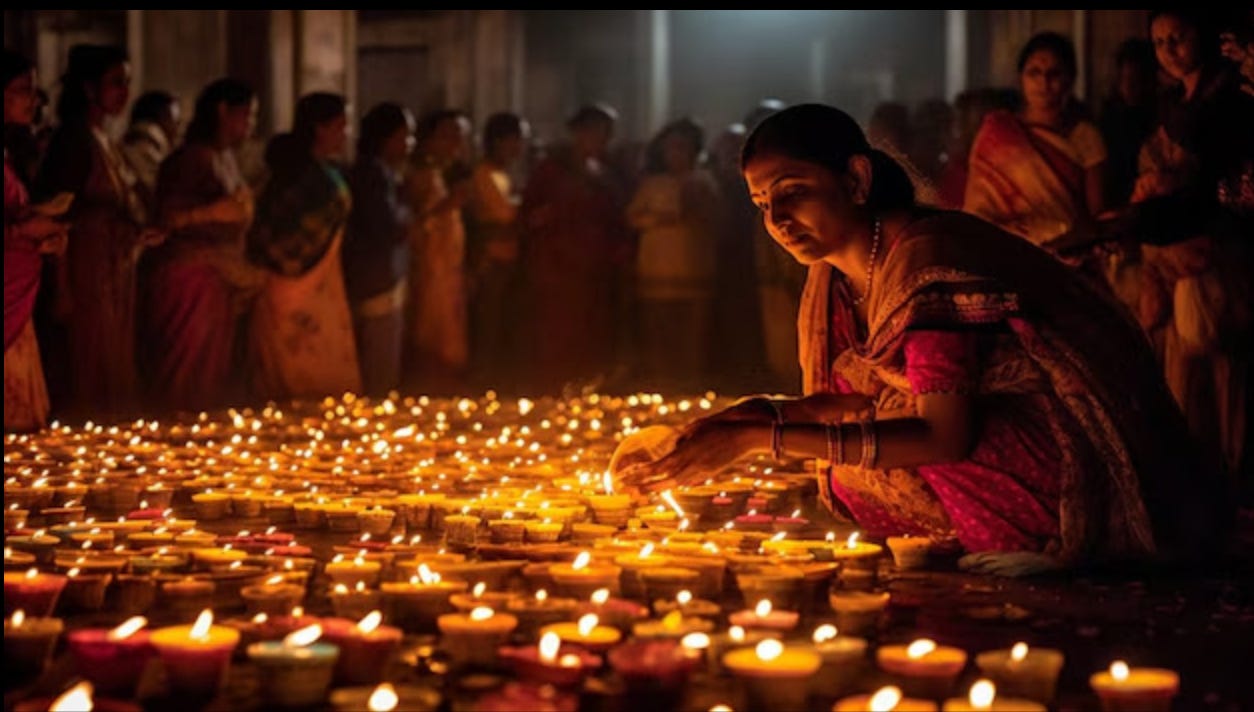Medusa—I See You #6
I helped so many men find their way home because they lost themselves on a quest or in a war and all they wanted was to return home, to remember—from the safety of their homes. Do you understand?
Dear Reader, Welcome. I’m happy you’re here.
Today is an auspicious day. Thirty years ago, I gave birth to my firstborn, naturally and easefully, in the cozy comfort of our living room. It was the most ecstatic, epic experience of my life—an honoring of the powerful intelligence in my body and my baby—without interruption. I didn’t know it then, but it was my initiation into the power of Medusa—the gifts of her blood yet to be revealed. Happy Birthday, Autumn. Thank you for opening my eyes. I see you—your beauty, your power, your love, and your unwavering eye for justice.
If you enjoy reading my reflections, stay with me and click the ❤️ button, comment, or share so more people can discover them on Substack. I appreciate you and always respond. Thank you.
I see you. I see all those who men call monsters.
And I see the men who called them that. Call themselves heroes, of course.
I only see them for an instant. Then they’re gone.
But it’s enough. Enough to know that the hero isn’t the one who’s kind or brave or loyal. Sometimes — not always, but sometimes — he is monstrous.
And the monster? Who is she?
She is what happens when someone cannot be saved.
This particular monster is assaulted, abused, and vilified. And yet, as the story is always told, she is the one you should fear. She is the monster.
We’ll see about that…1
I am the one I’ve been waiting for and the only one who can truly see me, give me peace and unleash erotic power and protection. I know too much to go back to pretend. Sisterhood begins with me, my daughters, my mothers, my true sisters, brothers, and friends.
I choose Medusa. I choose love.
Why Study Greek Mythology?
For the past six weeks, we’ve stepped into the Medusa Myth to uncover and reframe her story — our story.
Greek mythology reflects and perpetuates a patriarchal worldview, anchoring stories that emphasize male dominance, power struggles, gender dynamics, race inequalities, and the control of female bodies. The pantheon is ruled by male gods like Zeus, who often assert their authority through violence, conquest, and sexual dominance. Female figures, while powerful, are frequently portrayed in roles that serve to reinforce male supremacy—either as submissive wives, objects of desire, or vengeful, monstrous outcasts when they challenge male authority (e.g., Medusa, Hera, Graiai-the elders). The myths often center on the hero’s journey, a narrative that frames slaying feminine-coded creatures (like the Gorgon) as a rite of passage for male maturity and power. The subjugation of women’s voices, agency, and sexuality within these stories echoes the larger societal structures of ancient Greece, where myths served as a cultural blueprint, legitimizing male privilege, control, and the relegation of women to subordinate roles.
I am the Salty Crone—a soft fierce single mom with three daughters that defy and thrive beyond to gender roles, ‘normative’ abilities, as do I. The perpetuation of patriarchal fuckery harms everyone and our Earth Mother. I’m interested in UNF*CKING US and together raising feminine consciousness—rising as a force of fierce love. Fully aware that I can only do me. So relaxing to say that.
The Myth of Medusa is a classic rooted in a misogynistic culture that objectifies women and weaponizes their image to exert power over others. This myth reveals the consciousness of the ‘storytellers’ and the collective fear of the female gaze, voice, and the power to be fully herself—human, sexy, erotic, and wise. Our course is designed to deconstruct this narrative and liberate buried emotions like betrayal, rage, and grief to honor our female bloodlines—our core, essential feminine consciousness.
After outlining the key points from my research on the Medusa Myth (mostly Natalie Hayes2, Susan Bowers3, and Cixous4, I’ve included quotes from Rachael and Anne’s beautiful presentations. Attendees receive a link to our recorded session. The material shared, your witnessing, and your reports are remarkable, vital, and a source of wise power for all of us. Read on to receive and savor our shared experience through stories, myths, dreams, and the powerful group engagement that culminated in a profound tobacco ceremony. Next, we move deeper, darker—into the womb of winter. Into solitude, rest, and the Crone craft of not doing. We enter hibernation, gestation, and preparation for emergence.
Knowing how to be solitary is central to the art of loving. When we can be alone, we can be with others without using them as a means of escape. —Bell Hooks

He who fights monsters should take care that he himself — does not become a monster. —Nietzsche
On pages 362—366 in Stone Blind, Natalie Haynes imagines a conversation between Athene and the Gorgoneion (the head of Medusa). Athene wants the Gorgoneion to change Medusa back to flesh again.
‘I would if I could… You ask me to change her back as though it had just happened… It happened centuries ago.’
“I wish I hadn’t turned round… But she’d be dead now anyway, it’s been hundreds of years. They die, don’t they?’ said the goddess.
‘Yes, they do. And the priestesses at your temple have kept a flame burning for her ever since they found her statue.’
‘In my sanctuary? I thought the fire was for me.’
‘It’s for the girl.’
‘I suppose that’s not blasphemy.’
‘Her statue serves yours,’ said the Gorgoneion. ‘It isn’t blasphemous at all.’
‘I’m bored of it now. I don’t care about statues anymore.’
‘Bored of the girl we killed?’
The dialogue continues with Athene’s boredom, confusion, and loneliness. She wants to go home.
I helped so many men find their way home, because they lost themselves on a quest or in a war and all they wanted was to return home. No matter what adventures they had, what riches they held, what wonders they saw, what they really wanted was to remember those things from the safety of their homes. Do you understand?
I don’t know where home is. I don’t have a home, really.’ The goddess explains.
The Gorgoneion reminds her of her many homes: Olympus, Athens… But they do not feel like home to Athene.
‘So you’re homesick for somewhere you’ve never been?’
‘You could help me find it.’
‘Perhaps. If that is what you want. I can only take you to one place,’ said the head of Medusa. And if it isn’t home, I can’t bring you back. You understand that?’
‘Yes.’
“Then look.’

What happens when we look at Medusa from another perspective?
My daughter told me about a Netflix series called Charmed. In episode 15, one of the ‘witch’ sisters realizes that Medusa was raped, cursed, and further punished by Athene (her Goddess) for what a man did to her. Instead of turning away like everyone else, she stopped, put down her sword, and looked directly at the frightful snake-headed Medusa.
‘Medusa, I see you. I know what they did to you. I see you. I’m not turning away. You have done nothing wrong. You were wronged, defiled, injured, cursed, and made into a monster. I see you. I’m not going anywhere. You have done nothing wrong…’
As the oldest sister gazes at Medusa without flinching, the snakes dissolve from Medusa’s head. She weeps, her body relaxes, and her humanness is restored. I cried along with the women in the scene. Those who were turned to stone became so because they turned away from Medusa and stayed silent about the crimes committed against her. The stone people return to human form, but not without consequences from the empowered women who refuse to collude with criminal behavior any longer—full stop.
It is a beautiful example of what happens when we witness, rinse, repeat, root, and rise together without apology—with permission to feel the full range of human emotions. I did not watch the entire series.
Are all monsters heroes who went astray?
Keep reading with a 7-day free trial
Subscribe to The Salty Crone ✨ Prajna O'Hara to keep reading this post and get 7 days of free access to the full post archives.





